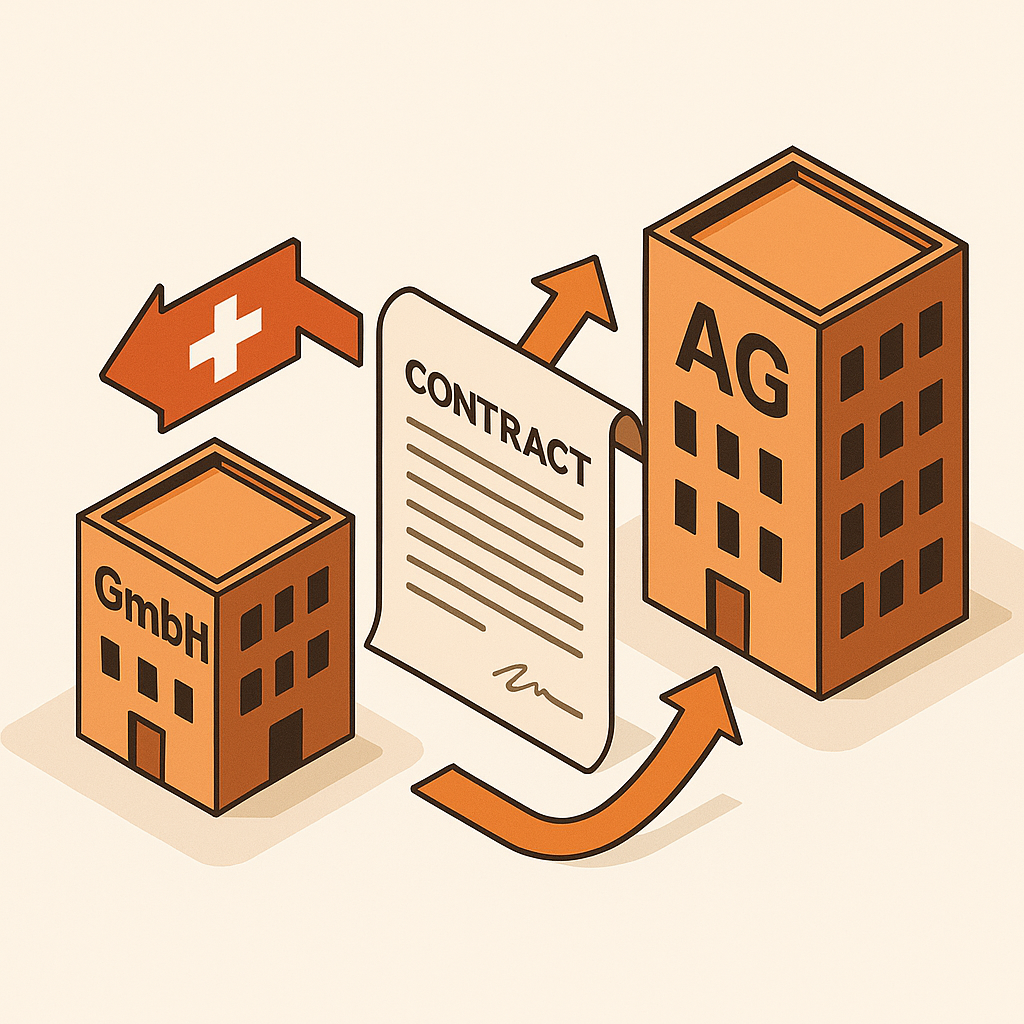Founding a company in Switzerland: GmbH or AG? What SMEs need to consider

When you start your own business, the question quickly comes up: GmbH or AG — which is better suited to my project? Both types of companies have their advantages — this article helps you to find the optimal choice for your SME in Switzerland.
Now Have legal issues (OR, work, taxes) examined for your company — directly via our digital legal assistant Jurilo.ch/
GmbH vs. AG — the most important differences
Minimum capital:
o GmbH: 20,000 CHF
o AG: 100,000 CHF (at least 50,000 paid in)
Liability:
o Shareholders of a GmbH are only liable with their contribution
o Shareholders are also only liable to a limited extent
Shareholder structure:
o GmbH: up to 100 shareholders, more flexible regulations
o AG: ideal for multiple investors, transferability of shares
Disclosure requirement:
o AG must disclose more (publish annual financial statements)
o GmbH is less committed
Decision-making factors
1. Capital requirement
2nd Financing options: Are equity investors more likely to engage in joint stock companies
3rd Company size and governance: AG is better suited for growth
4th Tax planning: Holding AGs offer tax benefits
5th Flexibilityvs. structure: GmbH is easier, AG more professional
Pre-start-up checklist
· Statutory bodies (corporate purpose, share capital, common shares/shares)
· Commercial register entry with incorporation service provider or notary
· Bank account with payment of common or share capital
· Submit a company agreement/statute to HR
FAQ — common questions
Can I switch from GmbH to AG later?
Yes — a conversion is possible, but involves effort and costs.
Do I need a managing director at GmbH?
Yes, at least one managing director must be appointed; he can also be a partner.
Is it easy to transfer shares?
In the case of GmbH only with consent, AG shares are transferable without consent — remains to be checked.
Now Have legal issues (OR, work, taxes) examined for your company — directly via our digital legal assistant Jurilo.ch/

